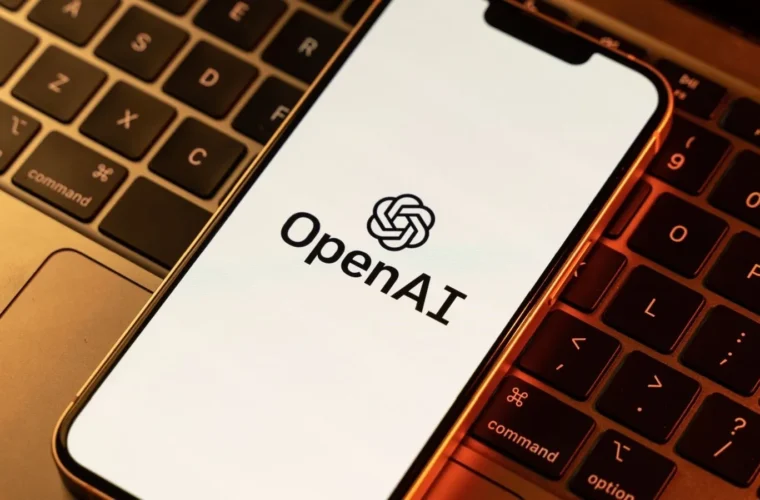AI personal data: Take a look around; AI is everywhere, bringing incredible opportunities that almost seem like magic. Artificial Intelligence lets machines think, learn, and make decisions just like us. Indeed, ChatGPT and other AI tools are making waves across various fields—from healthcare and finance to art and everyday apps.
But here’s the question on everyone’s mind: Is AI stealing our personal data? If you’ve ever wondered about this, you’re not alone. Your concerns about AI and privacy are not just valid; they are crucial and more significant today than ever in our digital world.
AI: the data hunger hulk
To comprehend the potential risks, we must first understand the workings of AI systems. These cutting-edge technologies rely heavily on large amounts of data to learn, adapt, and make accurate predictions. The more data an AI system ingests, the better it recognises recognises patterns, understands context, and delivers personalised personalised experiences.
AI algorithms crave data as they hunger for it, constantly seeking new sources of information to refine their capabilities. This hunger for data has raised eyebrows, as it often involves collecting and processing personal information from users, sometimes without their explicit consent.
The invisible data trail
In our digitally connected world, we leave behind an invisible trail of data with every online interaction. From browsing histories and search queries to social media activities and online purchases, our digital footprints paint a detailed picture of our interests, preferences, and behaviours. While this data is often collected for legitimate purposes, such as improving user experiences or targeted advertising, it also presents a potential goldmine for AI systems. These systems can analyse, analyse, and learn from our personal data, enabling them to deliver more accurate results and personalised recommendations.
However, many users are unaware that their personal data is being collected and used to train AI models, raising ethical questions about tech companies’ practices. Experts argue that companies should be more transparent about their data collection practices and seek explicit consent from users before using their personal information for AI training or other purposes. This approach respects individual privacy and fosters trust between users and technology providers.

The role of responsible AI development
Responsible AI development plays a pivotal role in addressing data privacy concerns. AI systems should be designed and trained with ethical principles in mind, ensuring that personal data is handled securely and used only for legitimate purposes.
One approach is to develop AI models that can learn from anonymized or synthetic data, reducing the reliance on personal information. Additionally, techniques like differential privacy and federated learning can enable AI systems to learn from decentralized data sources without compromising individual privacy.
Ultimately, users should have control over their personal data and the ability to make informed decisions about how it is used. Tech companies can empower users by providing transparent privacy policies, clear opt-out mechanisms, and tools to manage and delete their data. Moreover, education and awareness campaigns can help users understand the implications of sharing personal data and equip them with the knowledge to make informed choices about their digital privacy.
Addressing AI-Powered plagiarism
Another issue that has been circulating is AI plagiarism. AI plagiarism refers to the act of using AI tools like text generators to create content that is passed off as original work by someone, even though an AI-generated it. To address this issue, there is a growing call for a moratorium on using AI systems trained on unverified data sources. Institutions and organizations engaged in promoting, training, or teaching AI should refrain from using AI models until the origin and legality of their training data can be verified. By ensuring that AI systems are trained on ethically sourced and legally obtained data, we can mitigate the risk of AI-powered plagiarism and protect the rights of content creators and publishers.

But beyond regulatory measures, fostering a culture of responsible AI adoption is the most crucial. This involves educating developers, researchers, and end-users about the ethical implications of AI technologies and promoting best practices for data handling and model development. Collaborative efforts between academia, industry, and civil society can help establish ethical guidelines, develop curricula, and promote AI development and deployment transparency.
The Future of AI and Data Privacy
As AI technologies continue to advance, regulatory frameworks and industry standards become crucial in ensuring data privacy and security. Governments and international organizations should collaborate with tech companies and privacy advocates to establish clear guidelines and best practices for data collection, storage, and usage. These regulatory frameworks should balance protecting individual privacy and fostering innovation, creating a level playing field for all stakeholders while safeguarding user rights.
The future of AI and data privacy is highly linked. As AI systems become more sophisticated, the need for robust data privacy measures will only increase. Technological advancements, such as privacy-preserving AI techniques and decentralized data storage solutions, promise to address these challenges.
However, true progress can only be achieved through a concerted effort involving tech companies, policymakers, and users. The path ahead is not without challenges, but by working together and maintaining a steadfast commitment to ethical principles, we can shape a future where AI and data privacy coexist in harmony, driving progress while respecting the fundamental rights of individuals.



